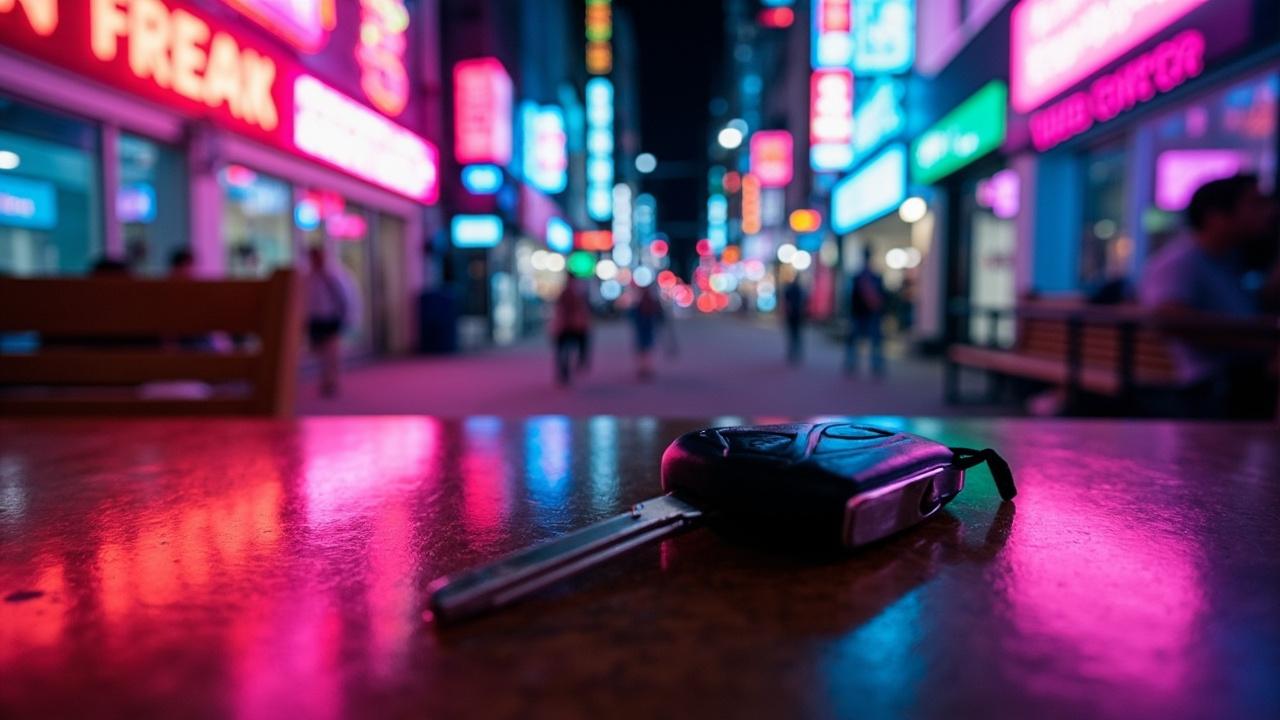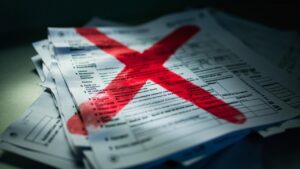Introduction
Facing a DUI in Koreatown can be daunting, and a koreatown dui defense lawyer is essential. Koreatown (K-Town), a vibrant and culturally rich enclave within the sprawling metropolis of Los Angeles, presents unique challenges when navigating the legal complexities of a Driving Under the Influence (DUI) arrest.
More than just dealing with standard legal procedures, individuals find themselves at the intersection of legal ramifications and deeply ingrained cultural sensitivities. From language barriers to concerns about community reputation, a DUI in K-Town demands a nuanced approach.
The cultural landscape of Koreatown adds layers of complexity to the legal process. Simple misunderstandings arising from cultural differences in communication styles can be easily misconstrued by law enforcement. The potential for language barriers further complicates matters, making it crucial to understand your rights and how to assert them effectively. Beyond the immediate legal consequences, the potential social stigma associated with a DUI conviction within the Korean community can be a significant burden.
Navigating this challenging landscape requires more than just legal expertise; it demands cultural sensitivity and an understanding of the specific nuances of the community. Successfully resolving a DUI charge in Koreatown involves acknowledging the cultural context, addressing potential misunderstandings, and working with legal counsel familiar with the local dynamics. An experienced attorney can help ensure that your rights are protected and that your case is handled with the utmost care and understanding.
The Immediate Aftermath
Following a DUI arrest in Koreatown, the immediate aftermath is crucial in determining the trajectory of your case. It’s paramount to remain as composed as possible, though understandably difficult. While cooperating with law enforcement, remember that you have the right to remain silent and you should exercise it. Avoid answering questions beyond providing basic identification. Anything you say can and will be used against you. Defer any detailed explanations or admissions until you have consulted with legal counsel.
California’s implied consent law stipulates that by driving on public roads, you’ve implicitly agreed to submit to chemical testing (blood or breath) if arrested for DUI. Refusal to take a test can lead to an automatic suspension of your driver’s license, even if you are not ultimately convicted of the DUI.
The penalties for refusing can be even harsher than those for a first-time DUI conviction. The officer may also obtain a warrant to compel a blood test.
Begin documenting everything you remember about the incident as soon as possible. Jot down the time and location of the stop, the names (if possible) and badge numbers of the officers involved, and any details about the field sobriety tests administered. This information will be invaluable to your koreatown dui defense lawyer when building your case. Equally critical is to take immediate steps to protect your driving privileges.
You have a very limited time frame, typically 10 days from the date of your arrest, to request a hearing with the Department of Motor Vehicles (DMV) to challenge the suspension of your license. Failure to request a hearing within this timeframe results in automatic suspension.
Seeking legal counsel immediately is not just advisable, it is essential. A skilled attorney can guide you through these initial steps, ensuring that your rights are protected and that you make informed decisions during a highly stressful and confusing period.
Cultural Considerations and Misunderstandings During a DUI Stop in Koreatown
When dealing with law enforcement during a DUI stop in Koreatown, it’s crucial to recognize that cultural differences in communication can lead to misunderstandings. What might be considered respectful behavior in Korean culture could be misconstrued by officers unfamiliar with these nuances. For example, avoiding direct eye contact, especially when feeling shame or remorse, is often seen as a sign of respect in Korean culture.
However, a law enforcement officer might interpret this as a sign of dishonesty or guilt. Similarly, a general sense of deference to authority figures might lead an individual to be overly agreeable or hesitant to assert their rights, which could be taken advantage of during questioning.
Language barriers are another significant hurdle. While Los Angeles has a large Korean-speaking population, not everyone is fluent in English. Even individuals with some English proficiency may struggle to understand complex legal terminology or express themselves clearly under the stress of a DUI stop. It is crucial to assert your right to an interpreter to ensure you fully understand the charges against you and can communicate effectively with law enforcement.
Failing to do so can lead to unintentional self-incrimination or misrepresentation of your situation. Remember, you have the right to an interpreter during questioning and throughout legal proceedings. A competent *koreatown dui defense lawyer* will ensure that your rights are protected.
Furthermore, there is a strong stigma associated with DUI offenses within the Korean community. A DUI arrest can bring shame not only to the individual but also to their family, potentially affecting their social standing and relationships.
This fear of judgment and social repercussions can create additional stress and anxiety, making it even more difficult to navigate the legal process effectively. It is important to remember that you are not alone and that seeking legal help is not an admission of guilt but rather a responsible step toward protecting your rights and future.
Understanding California DUI Laws
California DUI laws are stringent and carry significant penalties, particularly in a densely populated area like Los Angeles County. It’s essential to understand that a DUI charge involves two separate but related actions: an administrative action by the Department of Motor Vehicles (DMV) concerning your driving privileges, and a criminal case handled by the courts.
A blood alcohol content (BAC) of 0.08% or higher is the standard threshold for a DUI charge for drivers 21 years or older, however, commercial drivers face stricter regulations.
Drivers under 21 years of age face a BAC threshold of 0.01%. Penalties for a DUI conviction can range from fines and mandatory DUI education programs to jail time and the installation of an ignition interlock device.
The severity of the penalties often depends on various factors, including your BAC level at the time of arrest, whether this is your first DUI offense, and whether any aggravating circumstances are present. Aggravating circumstances can include having a BAC of 0.15% or higher, causing an accident that resulted in injuries or property damage, or having a minor in the vehicle at the time of the offense.
These factors can significantly increase the fines, jail time, and other penalties you may face. Therefore, navigating these complexities requires the expertise of a knowledgeable legal professional, such as a koreatown dui defense lawyer.
Sentencing for a DUI conviction in Los Angeles County can include a combination of fines, which can range from several hundred to several thousand dollars, jail time, mandatory DUI school or alcohol education programs, community service, and the installation of an ignition interlock device (IID) on your vehicle. The length of DUI school and the duration of the IID requirement will vary based on the specifics of your case.
Furthermore, a DUI conviction will also result in a suspended driver’s license, which can significantly impact your ability to commute to work, run errands, and maintain your daily routine. A skilled attorney can assess the details of your case and advise on the best course of action, potentially negotiating for reduced charges or alternative sentencing options.
| Factor | Potential Consequence |
|---|---|
| BAC of 0.08% or higher (21+) | DUI Charge |
| Aggravating Circumstances (High BAC, accident, minor in vehicle) | Increased penalties (fines, jail time) |
| DUI Conviction | Suspended driver’s license, mandatory DUI school, IID |
The DMV Hearing
The Department of Motor Vehicles (DMV) hearing is a critical step following a DUI arrest, often overlooked but vital for preserving your driving privileges. Unlike the criminal case, which focuses on guilt or innocence, the DMV hearing is an administrative process that determines whether your driver’s license will be suspended.
It is separate and distinct from the criminal court proceedings and has its own set of rules and deadlines. Failing to request a hearing within the strict 10-day window after your arrest automatically results in a license suspension, regardless of the outcome of your criminal case.
Understanding the Hearing Process
The DMV hearing is conducted by a hearing officer who acts as both the judge and the jury. The officer will review evidence presented by both sides, including the police report, chemical test results (blood or breath), and any statements made by you or the arresting officer.
The hearing officer’s role is to determine whether there was probable cause for the initial traffic stop, whether you were lawfully arrested, and whether your blood alcohol content (BAC) was at or above the legal limit of 0.08%.
The hearing is less formal than a courtroom trial, but it is still a legal proceeding with specific rules of evidence and procedure. It’s crucial to remember that the burden of proof is on the DMV to demonstrate these elements by a preponderance of the evidence, meaning more likely than not.
Why Representation Matters
Having legal representation at your DMV hearing can significantly improve your chances of avoiding license suspension. A skilled attorney can present a strong defense by challenging the evidence against you, cross-examining the arresting officer, and raising legal arguments about the validity of the traffic stop, the accuracy of the chemical test, or the procedures followed during the arrest. They understand the nuances of California DUI law and DMV regulations and can effectively advocate for your rights.
For example, a koreatown dui defense lawyer will be familiar with the specific issues that often arise in DUI cases within the Koreatown community, such as language barriers or cultural misunderstandings that might have impacted the arrest. Without legal representation, you may be at a disadvantage in navigating the complex legal system and understanding your rights.
Building Your Defense
Hiring legal representation is a critical step after a DUI arrest, and that’s especially true in a culturally diverse community like Koreatown. Navigating the complexities of California DUI law while understanding the specific nuances of the local community requires a specialized approach. Finding a koreatown dui defense lawyer who understands both the legal landscape and the cultural context can make a significant difference in the outcome of your case.

Local Expertise Matters
A lawyer familiar with the Los Angeles County court system will have established relationships with judges and prosecutors, and a deep understanding of local procedures. This familiarity can be invaluable in negotiating plea deals, understanding potential biases, and navigating the specific challenges that may arise in a Koreatown DUI case. They’ll know the nuances of how cases are handled locally, giving you a distinct advantage. A koreatown dui defense lawyer can provide a culturally sensitive defense.
Investigating Your Case and Building a Strong Defense
An experienced attorney will thoroughly investigate the circumstances of your arrest, scrutinizing every detail for potential weaknesses in the prosecution’s case. This investigation may involve reviewing police reports, analyzing breathalyzer or blood test results, and interviewing witnesses. For instance, if there were language barriers during the initial traffic stop, a skilled attorney can argue that your rights were violated if you weren’t provided adequate translation services.
They can challenge the legality of the traffic stop, question the accuracy of the BAC testing equipment, and explore any mitigating circumstances that may be relevant to your case. Additionally, an attorney can present evidence of good character, employment history, and community involvement to paint a complete picture of you as an individual.
Negotiating for the Best Possible Outcome
Armed with a solid understanding of your case and the relevant legal precedents, your lawyer can negotiate with the prosecutor to seek a favorable resolution. This could involve reducing the charges, negotiating a plea bargain, or even getting the case dismissed altogether.
By presenting a strong defense and highlighting any weaknesses in the prosecution’s case, a skilled attorney can significantly increase your chances of achieving a positive outcome. In certain cases, they may even be able to negotiate alternative sentencing options, such as community service or alcohol education programs, instead of jail time.
Addressing Community Concerns
A DUI arrest in Koreatown carries ramifications that extend far beyond the legal system. Within a close-knit community like K-Town, reputation and social standing hold significant weight. The arrest itself, regardless of the eventual outcome of the case, can lead to considerable embarrassment, shame, and even social isolation.
News can travel quickly through social networks, family circles, and even professional circles, potentially impacting relationships, business opportunities, and overall community standing. This is particularly true given cultural norms that may place a high value on maintaining a clean record and avoiding actions that could bring dishonor to the family.
Navigating these sensitive issues requires careful consideration and a proactive approach. Open and honest communication with loved ones is often the first step. While it may be difficult, explaining the situation and expressing remorse can help mitigate potential damage to relationships. It’s also important to be prepared for questions and concerns from others in the community.
Having a clear and concise explanation of the events, while avoiding excessive details, can help manage the narrative and minimize misinformation. It’s also worth exploring community resources that offer support and guidance. Seeking advice from trusted elders or religious leaders within the Korean community can provide valuable perspective and help navigate cultural sensitivities.
Demonstrating genuine remorse and a commitment to making amends is crucial in rebuilding trust within the community. This could involve volunteering time to a relevant cause, seeking counseling for alcohol or substance abuse issues, or actively participating in community initiatives.
Taking responsibility for one’s actions and showing a willingness to learn from the experience can go a long way in repairing damaged relationships and restoring one’s reputation. Securing the services of a skilled *koreatown dui defense lawyer* can also positively affect the outcome of your case and give you the help and support you need.
| Area of Concern | Potential Impact | Possible Solution |
|---|---|---|
| Community Reputation | Stigma, gossip, social isolation | Be honest about the arrest and any steps taken to change. |
| Family Relationships | Disappointment, stress on family members | Discuss with family and apologize where needed |
| Professional Opportunities | Job loss, difficulty finding new employment | Be proactive and transparent with employers. |
| Personal Well-being | Shame, guilt, anxiety | Consider counseling or therapy |
The Long-Term Implications
The repercussions of a DUI conviction extend far beyond the immediate penalties. Individuals may face increased auto insurance premiums, often for several years. This financial burden can significantly impact a person’s budget, making it harder to make ends meet.
Furthermore, a DUI conviction can create obstacles in securing employment, particularly in professions requiring driving or those that involve working with children or vulnerable adults. Background checks often reveal DUI convictions, potentially disqualifying candidates from certain job opportunities. Travel restrictions may also arise, especially when attempting to enter certain countries with strict DUI-related immigration policies.
The good news is that California law allows for the expungement of a DUI conviction under certain conditions. This process involves petitioning the court to withdraw the guilty plea or set aside the guilty verdict, effectively dismissing the case. While the conviction remains on record, expungement can significantly improve job prospects and reduce the stigma associated with the offense.
To be eligible for expungement, the individual must have successfully completed probation and fulfilled all court-ordered requirements. It’s crucial to consult with a legal professional to determine eligibility and navigate the expungement process.
Rebuilding one’s life after a DUI requires a commitment to positive change and a willingness to seek support. Counseling can provide valuable tools for addressing underlying issues that may have contributed to the DUI, such as alcohol or substance abuse. Attending support groups, like Alcoholics Anonymous (AA), can offer a sense of community and shared experience, helping individuals feel less alone in their journey.
Furthermore, making positive lifestyle changes, such as avoiding excessive alcohol consumption and developing healthy coping mechanisms, is essential for preventing future DUI offenses. If you need help with your case, a koreatown dui defense lawyer can help you understand the long-term implications.
Conclusion
Navigating the complexities of a DUI charge in Koreatown requires more than just a basic understanding of California law; it demands an awareness of the unique cultural landscape that shapes the community. From potential language barriers and differing communication styles to the significant social stigmas associated with DUI offenses, these factors can profoundly impact the legal process and the individual’s overall well-being.
Remember, being accused of a DUI is not a reflection of who you are as a person. It is an opportunity to learn, grow, and make changes that will benefit you and your community in the long run.
It’s essential to remember that you are not alone in this journey. Koreatown offers a network of support, ranging from community organizations to experienced legal professionals who understand the intricacies of the local court system and the cultural sensitivities at play.
Seeking help is a sign of strength, not weakness, and it is the first step towards a more positive outcome. Don’t hesitate to reach out to family, friends, or support groups for guidance and encouragement as you navigate the legal process.
Ultimately, successfully navigating a DUI charge in Koreatown means advocating for yourself and exercising your rights. This begins with securing experienced legal representation from a *koreatown dui defense lawyer* who is not only well-versed in DUI law, but also possesses a deep understanding of the cultural nuances that can affect your case. With the right legal guidance and a commitment to addressing any underlying issues, you can overcome this challenge and move forward with your life.
Frequently Asked Questions
What are the potential penalties for a DUI conviction in Koreatown, Los Angeles?
A DUI conviction in Koreatown, Los Angeles, can result in various penalties. These may include jail time, typically served in a county jail, significant fines that can reach thousands of dollars, and suspension or revocation of your driver’s license.
Mandatory alcohol education programs are also common, and the court might order the installation of an ignition interlock device on your vehicle. The specific penalties depend on factors like prior DUI convictions and the circumstances surrounding the arrest.
How can a Koreatown DUI defense lawyer help me navigate the legal process after a DUI arrest?
A Koreatown DUI defense lawyer provides crucial support during the complex legal proceedings following a DUI arrest. They can thoroughly investigate the circumstances of your arrest, including the legality of the traffic stop and the accuracy of the breath or blood tests.
Your lawyer can also negotiate with the prosecutor to potentially reduce charges or penalties, and represent you aggressively in court if your case goes to trial, ensuring your rights are protected.
What defenses are commonly used in DUI cases in Koreatown?
Several defenses are often used in DUI cases in Koreatown. These can include challenging the validity of the initial traffic stop by arguing there was no reasonable suspicion.
Attorneys also scrutinize the accuracy of blood alcohol content (BAC) testing methods, challenging calibration, and the handling of samples. Other defenses focus on demonstrating medical conditions that could mimic intoxication or the “rising blood alcohol” defense, showing the BAC was legal while driving but rose after the stop.
What is the difference between a DUI charge and a DWI charge in California?
In California, the terms DUI (Driving Under the Influence) and DWI (Driving While Intoxicated) are often used interchangeably, although DUI is the more common and legally accurate term. California law focuses on impairment rather than just intoxication.
A person can be charged with DUI even if their blood alcohol content is below the legal limit of .08% if their driving is demonstrably impaired by alcohol or drugs.
What should I do immediately after being arrested for a DUI in Koreatown?
Immediately after being arrested for a DUI in Koreatown, it’s vital to remain calm and exercise your right to remain silent. Avoid answering any questions beyond providing basic identification. Contact a DUI defense lawyer as soon as possible.
Refrain from posting anything about the incident on social media. A lawyer can immediately advise you on protecting your rights and starting the defense process, including scheduling a DMV hearing to contest your license suspension.









